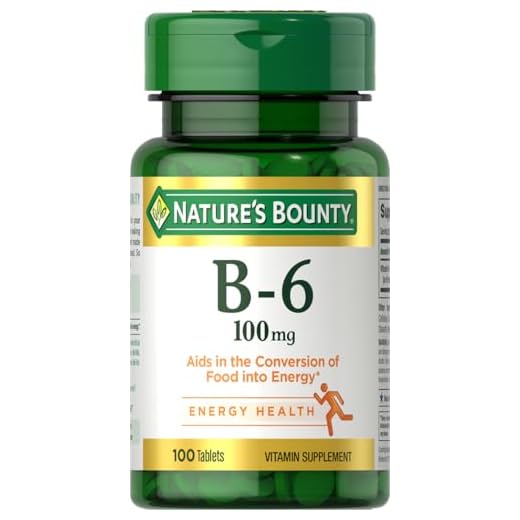







Vitamin B6 is effective in managing morning sickness during pregnancy. Clinical studies show that taking Vitamin B6, typically in doses of 10-25 mg three times daily, markedly reduces nausea symptoms compared to a placebo. Research indicates that fewer people supplementing with Vitamin B6 experience vomiting. It's recognized as a first-line treatment by the American College of Obstetricians and Gynecologists (ACOG) and is considered safe for both you and your baby at recommended doses. To maximize relief, pairing Vitamin B6 with other methods might be beneficial. There's more evidence on this topic that could help you find relief.
Key Takeaways
- Vitamin B6 is a first-line treatment for nausea and vomiting during pregnancy, particularly effective for severe morning sickness.
- Typical dosages of Vitamin B6 range from 10 mg to 25 mg, taken three times daily for optimal results.
- Clinical studies show significant reductions in nausea scores with Vitamin B6, especially in severe cases.
- There is no evidence that Vitamin B6 supplementation harms the fetus, making it a safe treatment option.
- Combining Vitamin B6 with doxylamine can enhance relief from morning sickness symptoms.
Overview of Morning Sickness
Experiencing morning sickness can be one of the more challenging aspects of early pregnancy for many individuals. Approximately 70% of pregnant individuals encounter this condition, which typically begins between weeks 4 and 7 and may last until weeks 16-20 or even longer. The symptoms of morning sickness are primarily characterized by nausea and vomiting, often triggered by hormonal changes that occur during early pregnancy. Research suggests that certain vitamins, such as Vitamin B6, may play a role in managing these symptoms, potentially providing some relief for those affected by this condition hormonal regulation.
While the symptoms are usually worse in the morning, they can arise at any time of the day, impacting your daily activities and overall quality of life. Although mild morning sickness is generally regarded as a normal part of pregnancy and does not pose a risk to the developing fetus, severe cases may indicate hyperemesis gravidarum. This condition can lead to significant weight loss and dehydration, necessitating medical intervention.
If you find yourself struggling with morning sickness, understanding its nature and symptoms can help you navigate this common experience. Being aware of the potential severity and duration of morning sickness can also prepare you for discussions with healthcare providers about management strategies, including the possible role of Vitamin B6.
Role of Vitamin B6
Can Vitamin B6 Help With Morning Sickness During Pregnancy?
Role of Vitamin B6
How can Vitamin B6 aid in alleviating the discomfort of morning sickness? Vitamin B6, also known as pyridoxine, is recognized as a first-line treatment for nausea and vomiting during pregnancy. It plays an essential role in neurotransmitter synthesis and metabolism, which can greatly influence mood and overall well-being. Typical dosages range from 10 mg to 25 mg taken three times daily. Evidence supports its effectiveness; for instance, a randomized, double-blind, placebo-controlled study showed that women suffering from severe nausea who received 25 mg of Vitamin B6 every 8 hours for 72 hours experienced a considerable reduction in nausea scores compared to those on a placebo. The mean difference in nausea scores was 4.3 for the Vitamin B6 group versus only 1.8 for the placebo group.
Moreover, post-treatment results indicated that only 8 out of 31 patients in the Vitamin B6 group experienced vomiting, in contrast to 15 patients in the placebo group. This highlights Vitamin B6's potential to reduce not just nausea but also vomiting associated with morning sickness. Importantly, there's no evidence suggesting harm to the fetus from Vitamin B6 supplementation, making it a safe and effective option for pregnant individuals grappling with morning sickness. Additionally, it enhances immune function, potentially offering further support during pregnancy overall health benefits.
Study Findings on Vitamin B6
Recent studies have reinforced the role of Vitamin B6 as an effective treatment for morning sickness, particularly in cases of severe nausea. A randomized, double-blind, placebo-controlled study demonstrated significant results, showing that pyridoxine hydrochloride (Vitamin B6) markedly reduced nausea scores in pregnant women experiencing severe symptoms. Additionally, incorporating an extensive blend of essential B vitamins, such as those found in Divine Bounty Super B Complex Vitamins, may further support overall well-being during this time. The mean difference in nausea scores was 4.3 for the Vitamin B6 group compared to 1.8 in the placebo group.
In this study, which involved 59 women categorized by the severity of nausea, participants received 25-mg Vitamin B6 tablets every 8 hours for 72 hours. Remarkably, only 8 out of 31 women in the Vitamin B6 group reported vomiting post-treatment, while 15 in the placebo group experienced vomiting. This indicates that Vitamin B6 may effectively mitigate vomiting associated with severe morning sickness.
However, it is essential to mention that no significant difference was observed for those with mild to moderate nausea, suggesting that Vitamin B6's benefits primarily target severe cases. Published in July 1991 in Obstetrics and Gynecology, this research highlights Vitamin B6 as a promising treatment option for nausea and vomiting during pregnancy.
Recommended Dosage Guidelines
When managing morning sickness, understanding the recommended dosage guidelines for Vitamin B6 is vital for efficacy and safety. The typical recommended dosage for alleviating morning sickness is between 10 mg to 25 mg, taken three times daily. In clinical studies, participants received 25 mg of Vitamin B6 every 8 hours for a total of 72 hours, which effectively reduced nausea. The American College of Obstetricians and Gynecologists (ACOG) recognizes Vitamin B6 as a first-line treatment for nausea and vomiting during pregnancy.
However, it's important to limit your daily intake to a maximum of 100 mg to avoid potential nerve damage and other side effects associated with excessive supplementation. Before you start Vitamin B6 supplementation, make sure to consult with your healthcare provider to determine the most appropriate dosage tailored to your specific needs. Your healthcare provider will consider various factors, including your overall health and the severity of your symptoms, to guide you in safely managing morning sickness with Vitamin B6. Adhering to these guidelines can help maximize the benefits while minimizing risks during your pregnancy.
Other Treatment Options
Exploring other treatment options for morning sickness can enhance your management strategy beyond Vitamin B6. The American College of Obstetricians and Gynecologists (ACOG) suggests combining Vitamin B6 with doxylamine, an antihistamine, for improved relief. Diclegis, a prescription medication containing both doxylamine and Vitamin B6, is FDA-approved specifically for treating nausea and vomiting during pregnancy.
In addition to these medications, non-pharmacological methods may provide symptom relief. Acupressure wristbands and acupuncture have shown promise for some individuals experiencing morning sickness. These techniques can complement your treatment plan and may help mitigate symptoms.
For those dealing with more severe cases of morning sickness, medical intervention might be necessary. This could involve hospitalization and intravenous fluids to combat dehydration and nutritional deficiencies. It's important to consult your healthcare provider if your symptoms are persistent or debilitating; they can help tailor a thorough approach that suits your needs.
Ultimately, while Vitamin B6 is a valuable tool, incorporating doxylamine and exploring alternative therapies may greatly enhance your overall management of morning sickness.
Dietary Recommendations
Incorporating dietary modifications can greatly support your management of morning sickness alongside other treatment options. For pregnant women experiencing nausea, specific dietary recommendations may help alleviate symptoms. Consuming increased protein and carbohydrates, such as peanut butter, nuts, and low-fat dairy, can provide essential nutrients while reducing feelings of nausea.
Opt for bland foods like gelatin and saltine crackers, which are easier on your stomach. It's best to avoid high-fat and high-salt foods, as these can exacerbate nausea. Instead of large meals, try eating frequent small snacks throughout the day to prevent your nausea from worsening.
Staying hydrated is vital; aim to drink fluids between meals rather than during meals to minimize the chance of triggering nausea. Additionally, a helpful tip is to nibble on dry toast or crackers before getting out of bed in the morning. This simple tactic may reduce morning sickness symptoms right from the start of your day.
Potential Side Effects
Vitamin B6 supplementation can be beneficial for managing morning sickness, but it's important to be aware of its potential side effects. Common side effects you might experience include dry mouth, headache, drowsiness, constipation, and stomach pain. While these symptoms can be uncomfortable, they're generally mild and manageable.
Serious side effects are rare but can occur. If you notice symptoms like blurred vision, confusion, or seizures, seek immediate medical attention, as these conditions can be serious.
For nausea relief during pregnancy, the typical recommended dosage of Vitamin B6 is between 10 mg to 25 mg, taken three times daily. Sticking to this recommended dosage is vital; overconsumption—particularly doses exceeding 100 mg daily—can lead to nerve damage and other adverse effects.
Fortunately, there's no evidence that taking Vitamin B6 at the recommended doses poses any additional risk to the fetus. By being mindful of these potential side effects and adhering to the suggested guidelines, you can safely use Vitamin B6 as a tool to help manage morning sickness during your pregnancy.
When to Consult a Doctor
If morning sickness symptoms persist despite trying home remedies, it's important to consult a doctor. Persistent nausea and vomiting can lead to dehydration and may require medical intervention. You should seek medical attention if you experience severe vomiting that causes dehydration, lose more than 2 pounds (1 kilogram) in a week, or notice any vomiting that resembles blood or coffee grounds.
If home management strategies fail, especially with ongoing severe nausea, your healthcare provider may consider prescribing medications like Diclegis or recommend further evaluation. It's important to keep your healthcare provider informed about any notable changes in your symptoms or overall health during pregnancy. These changes can greatly impact both your well-being and that of your baby.
Regular check-ins with your healthcare provider are essential for monitoring vitamin levels, including Vitamin B6, and ensuring that you receive appropriate treatment options for managing morning sickness. Remember, early intervention can help alleviate symptoms and improve your quality of life during this challenging time. Don't hesitate to reach out for support if you're struggling with morning sickness.
Related Research and Resources
Exploring the latest research on vitamin B6 can provide valuable insights into managing morning sickness effectively. Systematic reviews highlight that vitamin B6 supplementation is a first-line treatment for reducing nausea and vomiting during pregnancy. Specifically, studies recommend a dosage of 25 mg taken three times daily, which has shown significant reductions in nausea scores, particularly for those experiencing severe symptoms.
The American College of Obstetricians and Gynecologists (ACOG) endorses vitamin B6, either alone or in combination with doxylamine, as an effective strategy for alleviating morning sickness. Additionally, recent research suggests that combining acupressure with vitamin B6 may enhance relief from nausea, indicating a potential complementary approach to treatment.
Ongoing studies continue to investigate the efficacy and safety of various interventions for hyperemesis gravidarum, a severe form of nausea and vomiting in pregnancy. As you consider your options, staying informed about these findings can empower you to make educated decisions regarding your health and well-being during pregnancy. Always consult with your healthcare provider to tailor a treatment plan that's right for you.
Conclusion
In the journey of pregnancy, morning sickness can feel like an uninvited storm cloud. However, vitamin B6 may serve as a ray of sunshine, providing relief for many women. Research supports its effectiveness, making it a promising option worth considering. As you navigate this phase, remember to consult your healthcare provider for personalized advice. With the right support and knowledge, you can weather the storm and embrace the beauty of impending motherhood.





